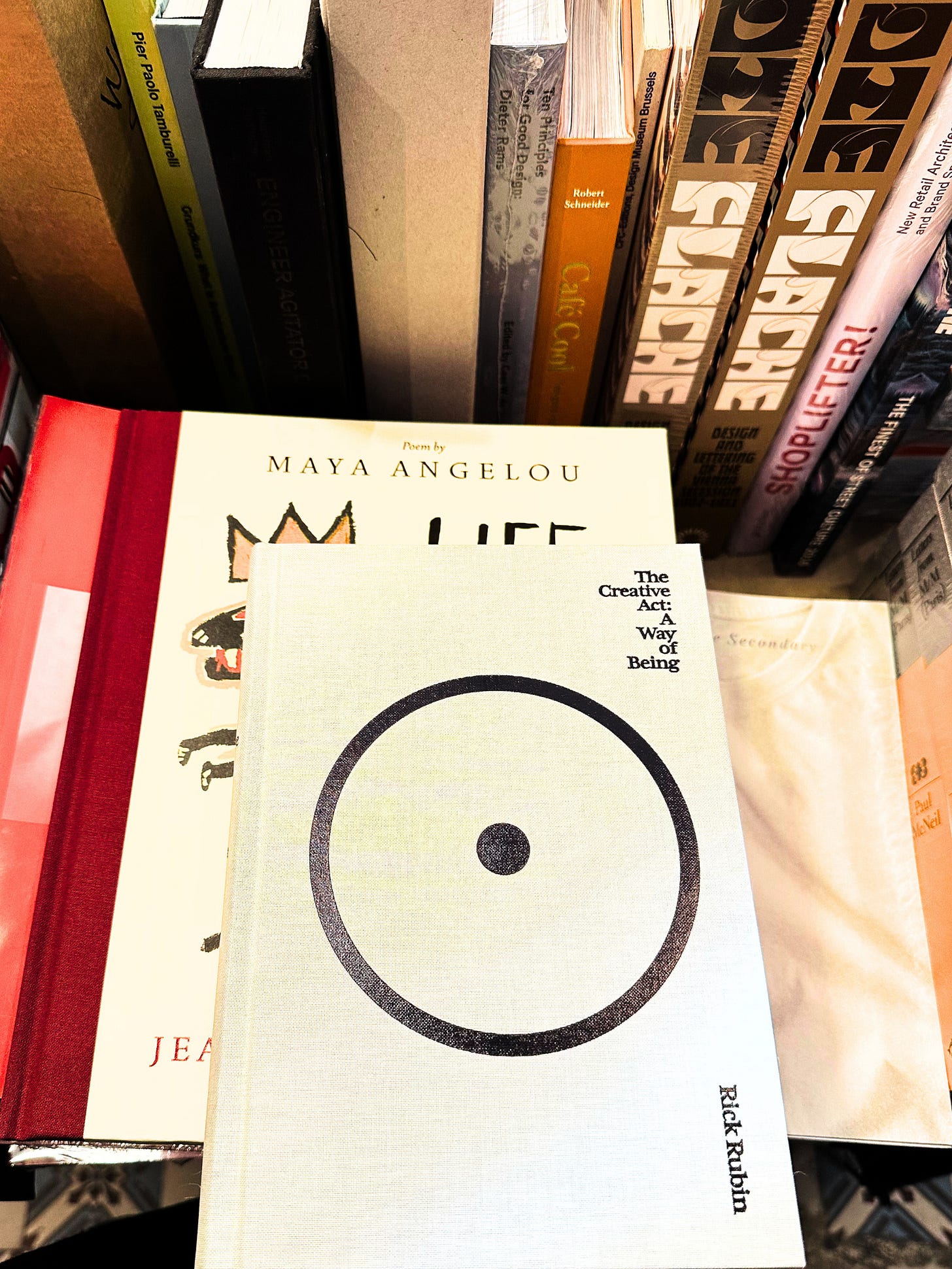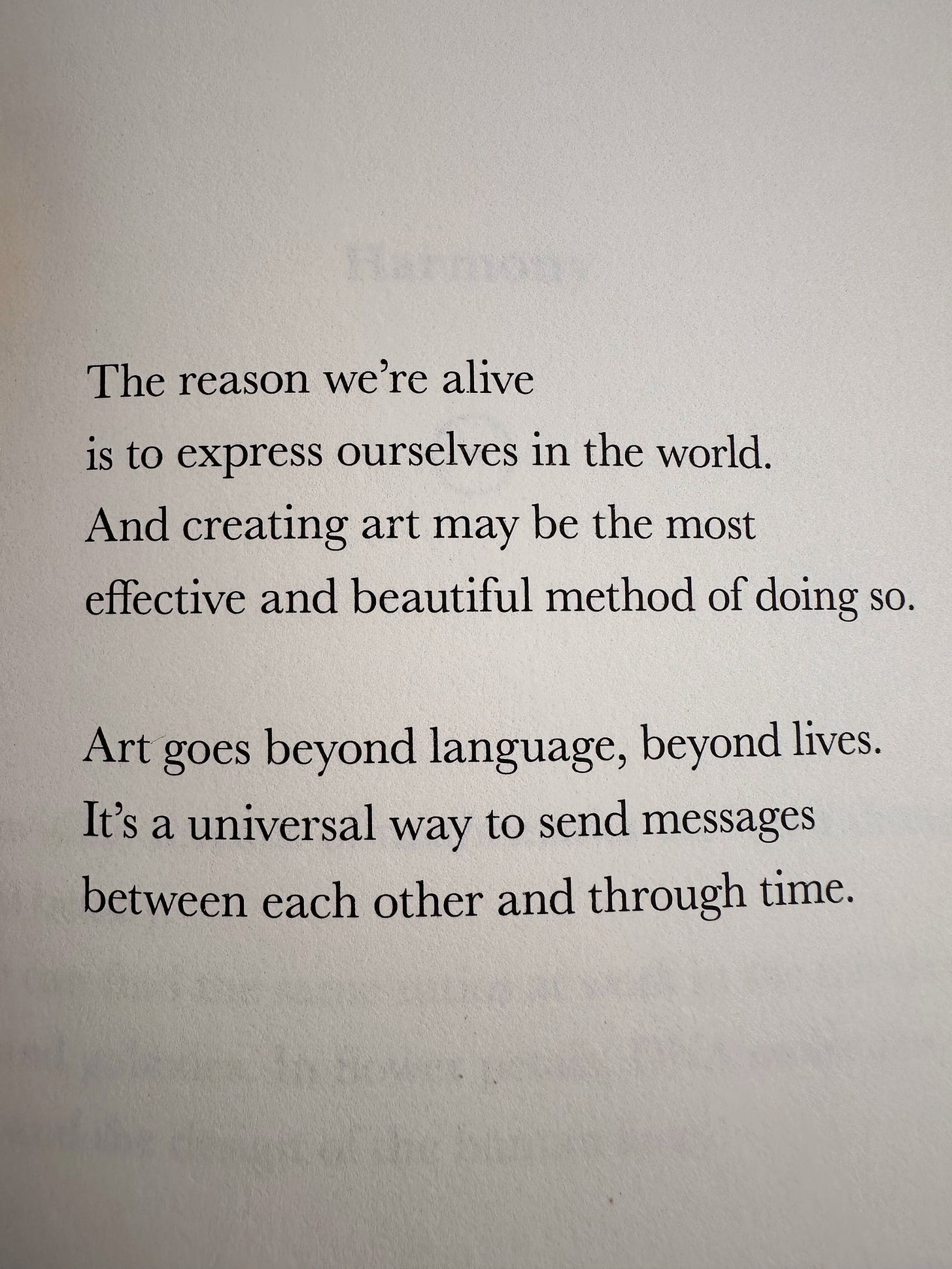I had been listening to Rick Rubin speak on a bunch of podcasts and began following him on Instagram. I loved what he shared; it reminded me of Julia Cameron’s book The Artist’s Way. I was meaning to pick up Rubin’s book The Creative Act: A Way of Being, but hadn’t gotten to it yet. While exploring various bookshops in Brussels and Paris, I came across Rubin’s book. There it was, sitting right next to a children's book adaptation of Maya Angelou’s Life Doesn’t Frighten Me.
I had originally been captivated by this children’s book, which told her poem alongside Basquiat’s art. I found it fascinating and needed a copy. As I looked beside it, there was Rick Rubin’s book, asking to be bought. I didn’t even check the price; I just knew I had to buy it. I read through it quickly, just wanting to finish it. But like I do with most books, I went back a second time so I could actually take in what the author was trying to say.
The best part of The Creative Act is that it is broken up into small chapters, allowing you to read it slowly and take in each insight Rubin offers. (the map above breaks the book down thematically) What I love is that he isn’t sharing anything new; he is just speaking in a way that is easy to digest. He doesn’t use too many words. He doesn’t tell unnecessary stories. You can tell he let the writing flow naturally; it felt as if he was teaching a college course. It was repetitive when needed, so it can stick with us, but expanded on ideas and allowed us to reflect throughout each small chapter.
It was inspiring to hear from someone who has had so many experiences in his own creative process and collaboratively. His insights encouraged me to see that each of us truly are creative beings; it is human nature to be, as long as we remain present. The process should be enjoyable, even with the many distraction and obstacles; it’s crucial for us to learn how to work through them.
Finding small routines that best suit our own creative process is key. I am realizing that mine requires a walk outside in the sun early, before my day gets started. Something as simple as a morning walk is part of discipline; it is simply doing something to fill up your own cup to work to the best of your abilities.
Each day creates new pathways of creative channels for us to explore. Rubin reminds us to embrace the unknown; allow ourselves to see where the journey might take us. There is no need to be too structured in aiming for the final result, because we will never know it until we allow it to present itself to us. We should maintain an openness that allows us to follow our intuitions when an idea presents itself. Nevertheless, throughout it all, we must not forget that the true goal is growth and exploration.
Rubin encourages the audience not to fear following a path that may seem different from the societal norm or trend; why not try something new when it comes to us? It seems that the more chances we take and are willing to explore, the more we can evolve. The journey of creativity is filled with discoveries, and embracing the unknown can lead to the most profound growth and fulfillment.






